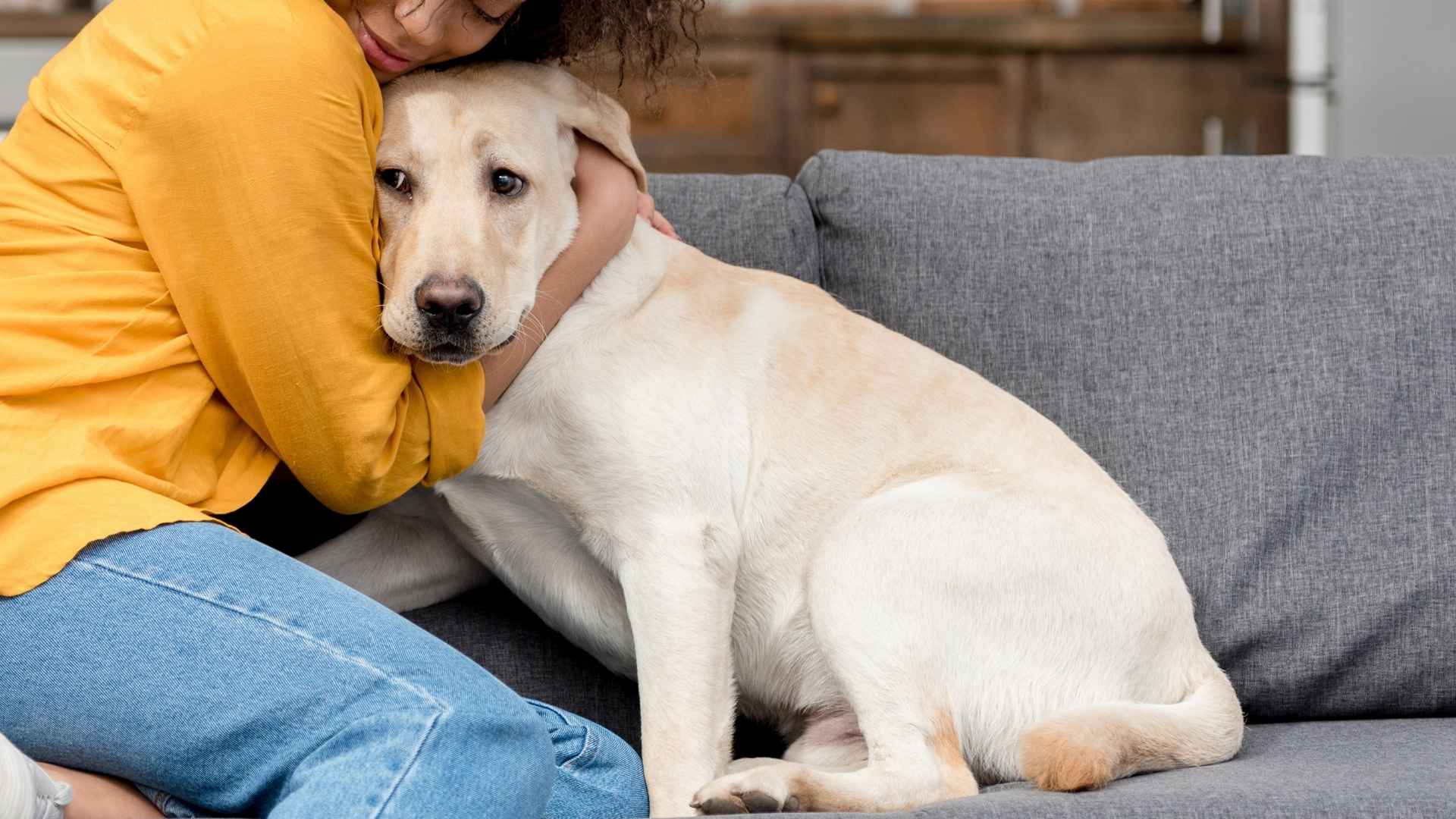Feeling alone in your emotional struggles can make everything harder (or even worse)!
But imagine having a constant companion who not only provides comfort but also watches over you with alert, caring eyes.
Emotional support dogs offer exactly this combination—a furry shoulder to lean on plus a protective presence that notices when something’s not right. They can detect shifts in your mood, physical changes, or environmental threats before you do.
This special awareness makes certain breeds particularly valuable for people dealing with anxiety, PTSD, or depression. The security of knowing someone’s always got your back can be life-changing.
Let’s explore seven exceptional dog breeds that naturally balance alertness with emotional connection.
Alert Emotional Support Dog Breeds
1. Border Collie

Border Collies are considered one of the most popular dog breeds, known for their unmatched focus and dedication. Their energy, intelligence, and quick-thinking nature make them stand out in the canine world. These dogs thrive on activity and challenge, often seen competing in sports like agility and dock diving. They bring both enthusiasm and skill to everything they do.
Highly responsive to commands, Border Collies learn at an impressive pace and adapt well to new routines. This versatility makes them ideal emotional support animals for people needing a sharp and reliable companion. They respond to structure, seek direction, and are naturally in tune with their handler’s needs. Their motivation and enthusiasm for work are unmistakable.
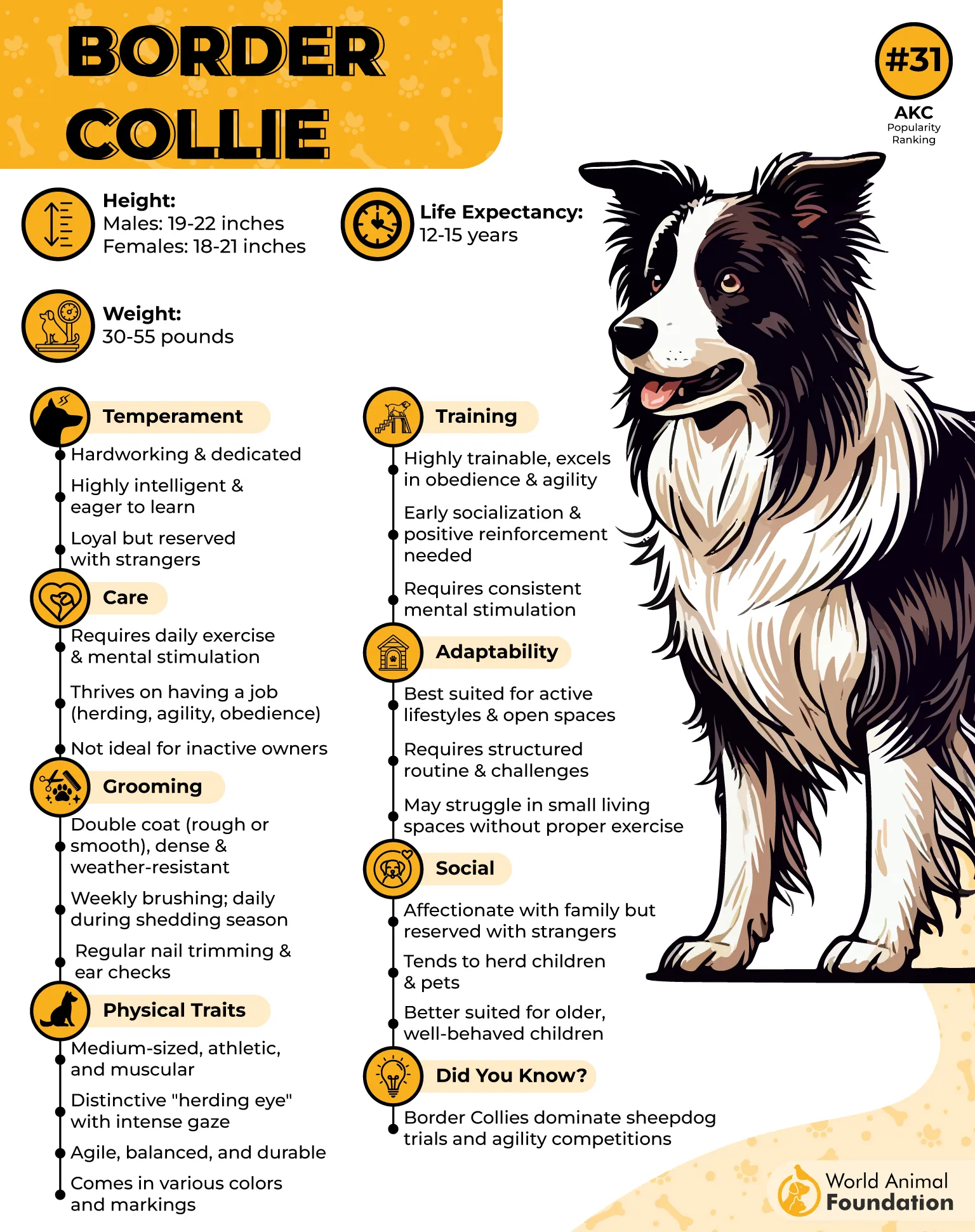
Their size, loyalty, and strong work ethic make them a great match for service work. Whether offering companionship or helping someone perform specific tasks, Border Collies are always up for the challenge, as per CertaPet. Their loving and responsive nature helps form strong bonds with their owners. They’re not just workers—they’re deeply affectionate too.
Their remarkable concentration during training is often shown in their signature focused stare. This focus, paired with a deep desire to please, allows them to master tasks efficiently. Their stature is well-suited for various roles, especially in settings where calm control is needed. With the right training, they shine in structured environments.
While they’re among the friendliest breeds, their herding instincts can sometimes kick in around small pets or kids. They can also be quite vocal if not guided early on. Without enough stimulation, they may turn to destructive behaviors out of boredom. Staying mentally engaged is key to keeping this breed happy.
2. German Shepherd
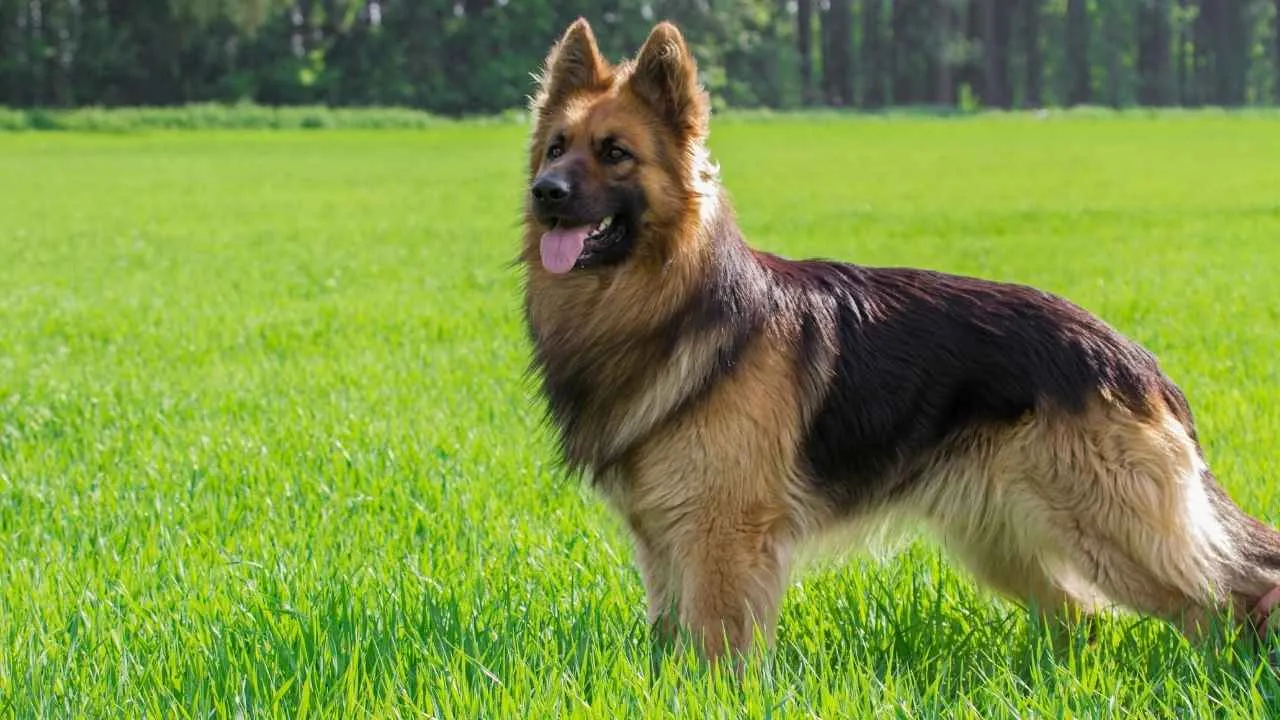
German Shepherds are known for their steady nerves and natural instinct to protect, which makes them deeply reassuring companions. Their calm presence helps ease stress in environments that feel overwhelming or unpredictable. It’s this quiet strength that allows them to excel as emotional support animals, especially for people who need both comfort and a sense of security.
Their intelligence isn’t just impressive, it’s practical. German Shepherds can perform specific tasks that genuinely improve daily life, like fetching medication, guiding movement, or interrupting anxious behavior, as mentioned in Pettable. They notice shifts in energy or mood and respond with gentle attentiveness. That built-in awareness isn’t taught; it’s instinct refined by training.

Beyond their skills, their temperament is ideal for emotional support. German Shepherds are gentle with loved ones, patient with children, and respectful of space when needed. They are not overbearing but always present, watching closely and stepping in when they’re truly needed. That kind of emotional availability is rare and deeply valued.
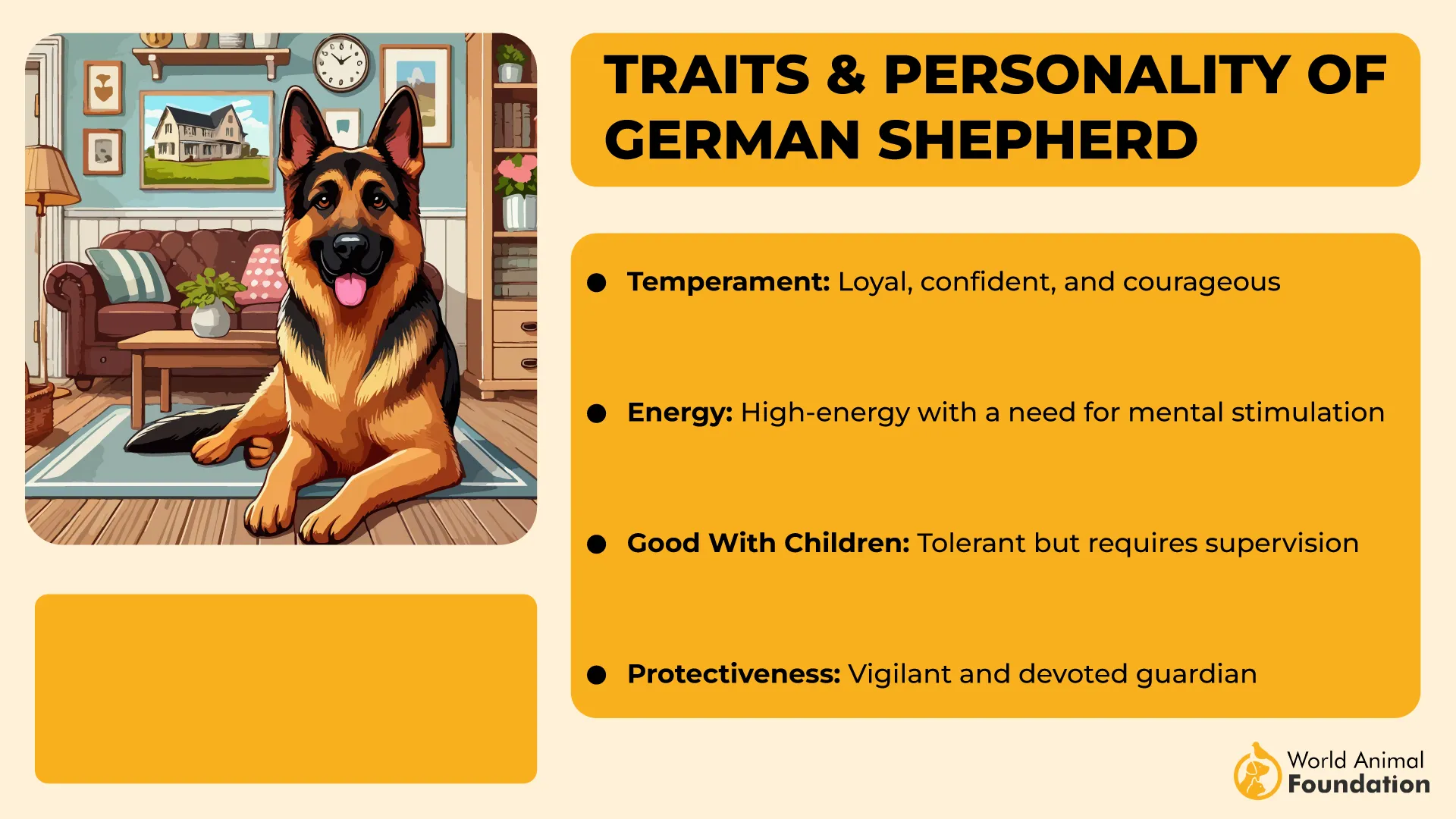
They also offer reliability, day in and day out. These dogs don’t just follow commands; they understand routine and purpose. People who feel unanchored often find steadiness in a German Shepherd’s quiet discipline. It’s part of what’s made them one of the most popular dog breeds for service and support roles over the decades.
Like any intelligent breed, they need structure, stimulation, and connection. Without these, they may grow restless or overprotective. But when trained with care and offered a role that taps into their instincts, German Shepherds give back tenfold. They don’t just help—they stay, they listen, and they truly understand.
3. Chihuahua
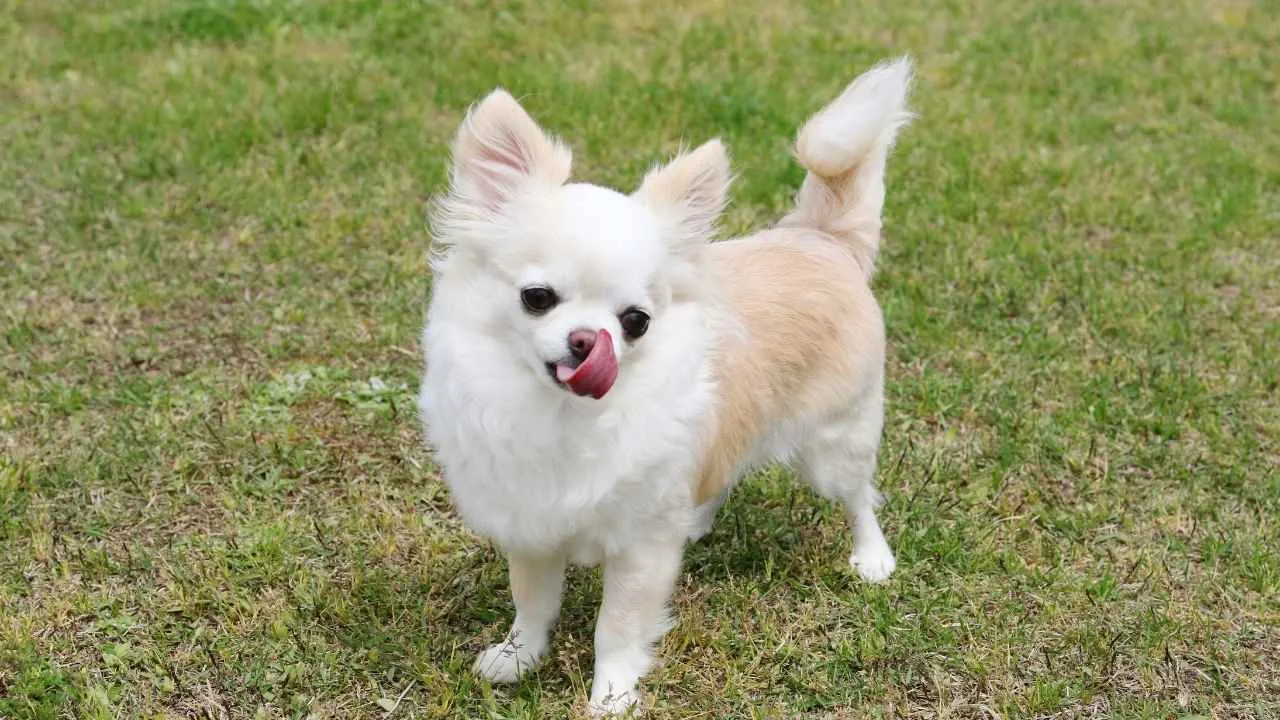
Chihuahuas might not be the first breed that comes to mind for support roles, but their emotional awareness is hard to ignore. Small in size but sharp in perception, they’re quick to recognize when something’s off. These little dogs have a remarkable ability to tune into their handler’s emotions. That makes them especially grounding for those managing stress day to day.
What they lack in size, they make up for in focus and sensitivity. Chihuahuas have been trained successfully to alert their handlers before seizures or drops in blood sugar. Their ability to detect early signs of distress, physical or emotional, is incredibly valuable. For those living with anxiety or panic disorders, their presence can offer steady reassurance.
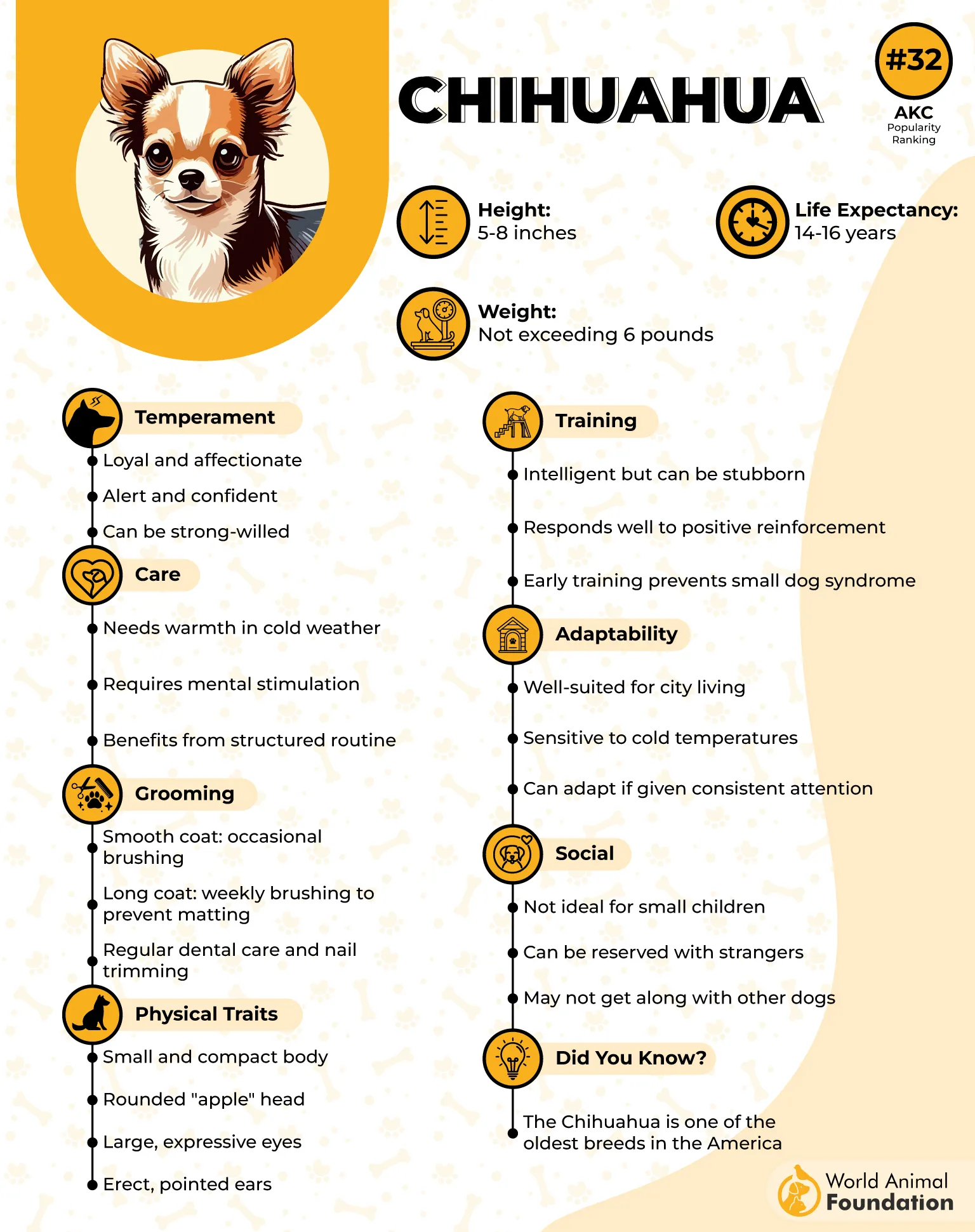
When properly trained, they can offer real support to people with PTSD, depression, or anxiety, as Petzooie claims. These dogs don’t just comfort—they interrupt harmful behaviors, nudge during spirals, or remind owners to take medication. They are calm, consistent, and aware when it matters most. Their loyalty builds a kind of safety net people can lean on.
Getting them to that point takes real commitment, though. Obedience, socialization, and public behavior all need to be shaped patiently. With a licensed mental health professional guiding the process, they can be trained for psychiatric tasks tailored to individual needs. When raised right, their size becomes a strength, not a limit.
Chihuahuas are incredibly devoted once bonded, and they thrive when they feel needed. They fit easily into apartments, can travel without stress, and stay close without being overwhelming. For someone seeking emotional steadiness in a small package, this breed brings a calm, comforting energy that doesn’t ask for much, just space to care.
4. Australian Shepherd
Australian Shepherds are deeply bonded dogs, known for attaching closely to their families. This loyal nature makes them excellent choices for people needing dogs that provide emotional support with a quiet, unwavering presence. They don’t offer affection casually, but once bonded, they become a reliable source of calm.
Generations of herding instinct make them sharp, alert, and aware of changes in their handler’s behavior. Australian Shepherds can sense and respond to mental health conditions like anxiety or PTSD through specialized training. They’re especially helpful during dissociative episodes or emotional spirals. These dogs don’t just react—they respond with intent.
Their ability to stay grounded during stressful moments makes them ideal for service dog work, especially where unpredictability is part of daily life. They’re naturally suited for tasks like mobility assistance, bracing, or guiding those with visual challenges. With the right training, they remain calm even when their environment isn’t. That reliability builds real trust.
They’re also highly effective medical alert dogs, able to detect shifts in blood pressure, blood sugar, or cortisol. Their velcro-dog tendencies mean they rarely stray far from their handler. Whether it’s deep pressure therapy for a panic attack or nudging to prevent overstimulation, they stay engaged and aware. They act with purpose, not just instinct.
For people managing medications or routines, Aussies can be trained to offer reminders and cues throughout the day. They carry out structured tasks with precision, and their eagerness to work never fades. Whether supporting emotional needs, giving physical aid, or offering daily consistency, they quietly provide emotional support without ever asking for anything in return.
5. Staffordshire Bull Terrier
Staffordshire Bull Terriers are deeply affectionate dogs known for forming strong emotional bonds with their people. Often referred to as “the nanny dog,” their sensitivity and loyalty make them wonderful companions for individuals who need emotional grounding. They thrive in close contact with family members. This closeness isn’t just sweet—it’s incredibly soothing.
Their patience and warmth, especially around children, translate well into the emotional support role. These dogs don’t just want to be around you, they need it. That constant companionship delivers daily therapeutic benefits to those who struggle with isolation or heightened stress. It’s the kind of presence that speaks louder than words.
Though full of energy, Staffies are also happy to curl up on the couch once their need for play is met. They’re not excessive barkers, but they’ll alert you or “talk” in moments of excitement. With a bit of proper training, their playfulness becomes manageable and even supportive. That structure helps build a calming, consistent environment.
Their intelligence shines through in how quickly they pick up new routines, especially with a creative approach to learning. Activities like tug-of-war and scent work keep their minds sharp and connected to their handler. Their eagerness to stay involved makes them great therapy dogs, particularly for individuals managing emotional ups and downs.
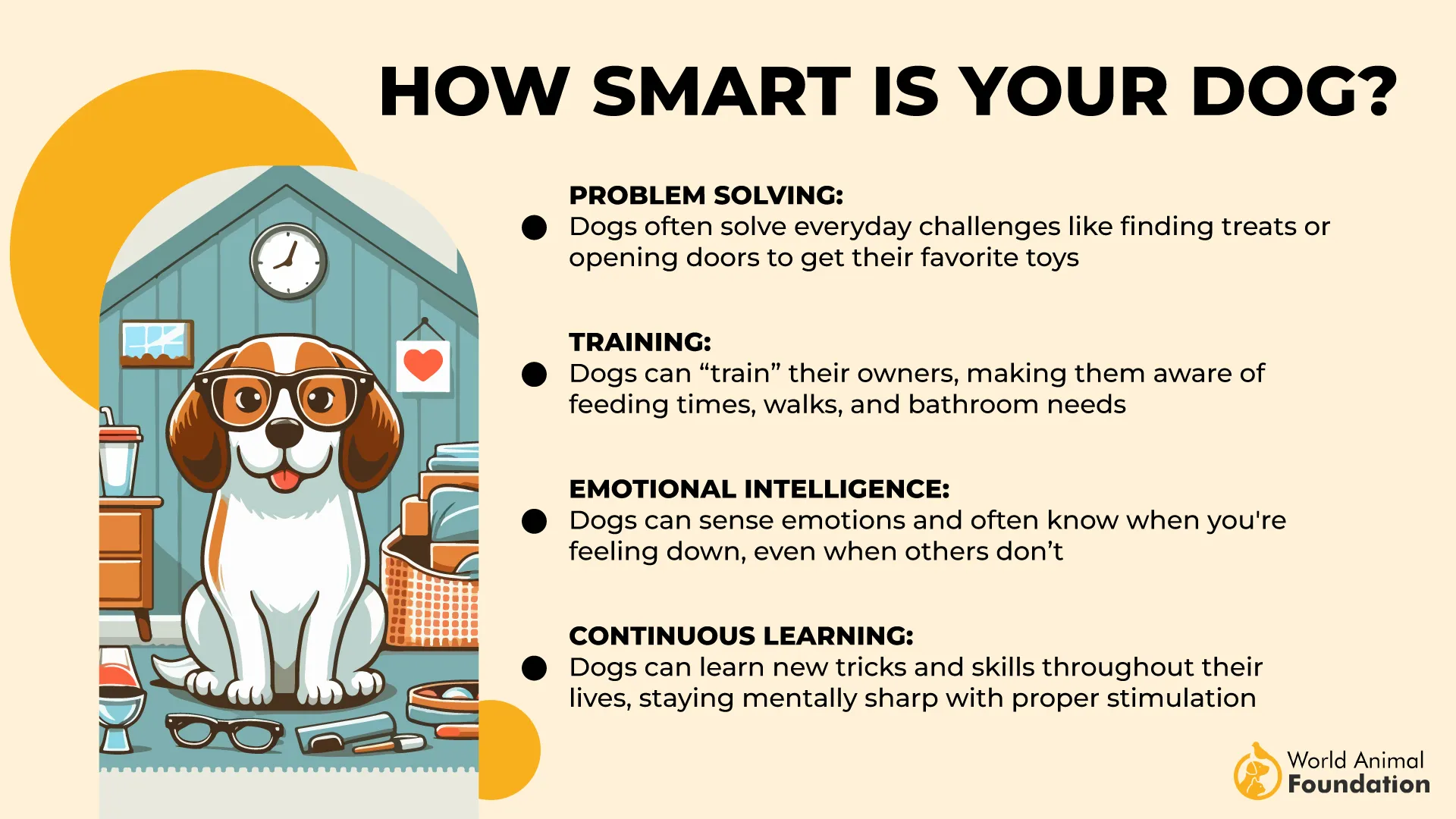
Staffies are not just a source of affection—they’re alert, engaged, and emotionally tuned in. When nurtured in the right way, they become more than pets, they become wonderful companions that carry their owner’s emotional weight without hesitation. It’s no surprise they’re cherished not only for their loyalty but also for the therapeutic benefits they bring daily.
6. Boxer
Boxers aren’t just playful goofballs—they’re also fiercely loyal, intuitive, and physically capable dogs that excel in emotional support and mobility assistance roles. Their natural strength, combined with a surprisingly gentle demeanor, makes them dependable for both grounding and guiding their handlers. They build tight emotional bonds with the people they serve.
One of the most valuable traits Boxers bring to the table is their ability to detect emotional shifts in their handler. When trained for deep pressure therapy, they know exactly when to lean in—literally. Their sturdy body weight can help ease panic attacks, flashbacks, or dissociation. It’s a calm that doesn’t require words to be felt.
For individuals living with mental health conditions, Boxers can do more than offer companionship—they can interrupt distressing behaviors, offer distraction during overwhelming moments, and even remind handlers to take medication. Their affection runs deep, but it’s paired with a steady alertness that ensures you’re never alone in a moment of need.
Boxers are also protective in a way that feels reassuring, not reactive. With their heightened senses and solid training, they can alert their handler to unfamiliar sounds or intrusions in the environment. Whether it’s warning you about an intruder or guiding you safely through a crowd, they take their job seriously.
Whether they’re applying pressure to calm your nervous system or bracing their body so you can steady yours, Boxers offer a blend of emotional and physical support that’s hard to match. Their strength is obvious, but it’s their quiet sensitivity that makes them true standouts in service dog work.
7. Beauceron
Beaucerons are deeply loyal and form strong bonds with their handlers, making them excellent emotional support companions. Their natural inclination to stay close and attentive provides a comforting presence for individuals needing consistent emotional grounding. This breed’s dedication ensures they are always nearby, offering silent support through various emotional states.
Their intelligence and trainability allow Beaucerons to learn and perform specific tasks that assist their handlers in daily life. Whether it’s reminding someone to take medication or providing a calming presence during stressful situations, their responsiveness is invaluable. Their ability to adapt to their handler’s needs makes them versatile support animals.
Beaucerons possess a calm and composed demeanor, which is beneficial for individuals dealing with anxiety or other mental health challenges. Their steady nature helps in creating a serene environment, reducing the likelihood of overstimulation. This tranquility is a cornerstone of their effectiveness as emotional support dogs.
While they are protective by nature, Beaucerons are not overly aggressive, making them suitable for households that require a balance of security and gentleness. Their watchful eyes and alertness ensure that their handlers feel safe, without the unpredictability that can come with more aggressive breeds.
It’s important to note that Beaucerons require consistent training and socialization from an early age to harness their full potential as support animals. Their strong will and intelligence mean they thrive under guidance that is firm yet compassionate. With the right approach, they become not just pets but indispensable partners in emotional well-being.
Conclusion
Selecting the right emotional support dog involves understanding individual needs and lifestyle. For those with dog allergies, hypoallergenic breeds may be preferable. It’s essential to consider personal health factors when choosing a companion.
Breeds like Labrador Retrievers and Golden Retrievers are often commonly trained as guide dogs. Their intelligence and temperament make them suitable for assisting individuals with visual impairments. These dogs provide both guidance and companionship.
For individuals requiring physical support, mobility assistance dogs such as German Shepherds and Boxers are beneficial. Their strength and training enable them to assist with balance and movement. These breeds are known for their reliability in such roles.
Breeds with a gentle nature and friendly disposition, like Chihuahuas and Staffordshire Bull Terriers, excel in providing emotional comfort. Their affectionate behavior helps alleviate feelings of anxiety and loneliness. These traits are crucial for emotional support roles.
Understanding the sensitive nature of each breed ensures a better match between dog and handler. Recognizing the unique qualities of the individual dog is key to a successful partnership. This personalized approach leads to more effective support.


